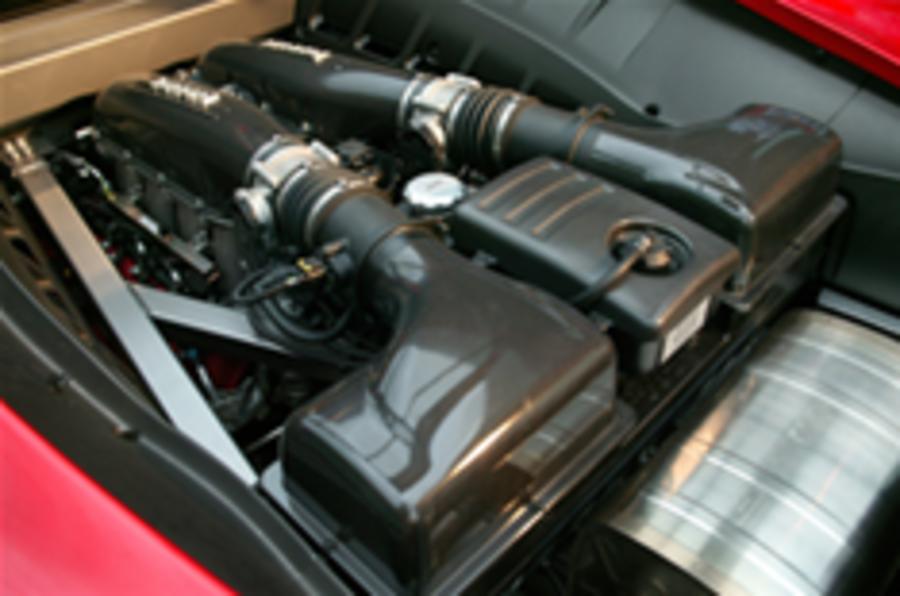Screaming performance and Government demands for low emissions will force Ferrari to phase in direct fuel injection within two years.The injection system will debut on a significant upgrade for the F430 coupe in 2009 before being grafted on to the 612 Scaglietti and then the 599 GTB Fiorano.The Italian supercar maker is working closely on the system with Bosch, the German supplier deeply involved in developing Audi’s sophisticated FSI direct-fuel injection system.Admitting it has torn down Audi’s fuel injection system to understand its possibilities, Ferrari insiders suggest that its new engine technology will allow for a 10 per cent improvement in horsepower more and at least a 40 percent reduction in emissions.
Ferrari’s new, improved engine technology
Direct injection will bring a very different look to the Ferrari V8 when it arrives in 2009. While the 4.3-litre capacity and the block are said to remain the same, everything north will be new.“It’s the same engine from the block down,” a Ferrari source advised, “but the injection rail will be new, the intakes will all be new, the cylinder heads will be new, the valve trains will be new and the throttle bodies will be a different type that you have not seen before.”Ferrari GT Technical Director Roberto Fedeli confirmed this, insisting that the time had come to bring environmental efficiency to Ferrari.“Direct injection is vital to our future. It gives us between five and eight percent in fuel economy improvements straight away.”“We looked at Audi because they spent a lot of time on it and use it in more than one application with different engines,” Fedeli admits.“We are working very hard with Bosch, because they worked with Audi and understand it very well. But we need some time to set up the electronics for it and to get the performance in line with the next step.”“It will be like the steps throughout our history. Electronic injectors replaced carburetors and this will replace what we’ve had.”However, direct injection alone won’t be enough to satisfy the emissions-saving legislation currently being discussed in Brussels, and around Europe. “We are aligned with the law now, but we are well short of the objectives of future legislation on emissions,” says Fedeli. “We are getting better and this will help a lot,” Ferrari’s research and development head said.“If we do everything we can technically do, we might reach 250 g/km. That’s short of what’s being talked about, but it’s a lot better than the 400g/km we do now.”





Add your comment